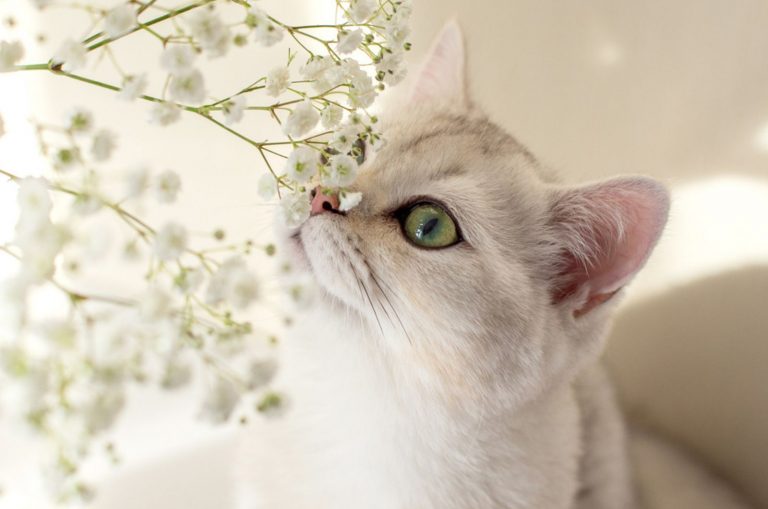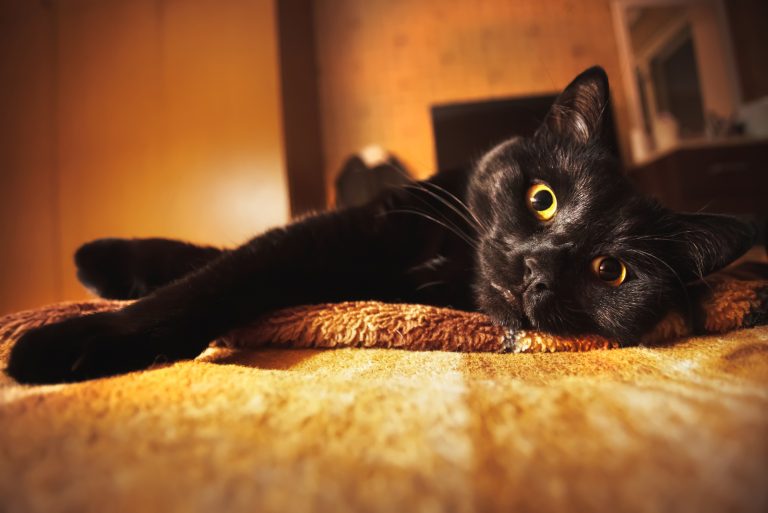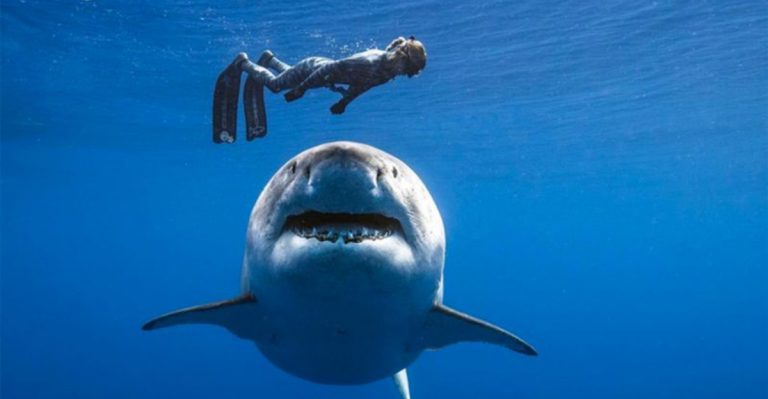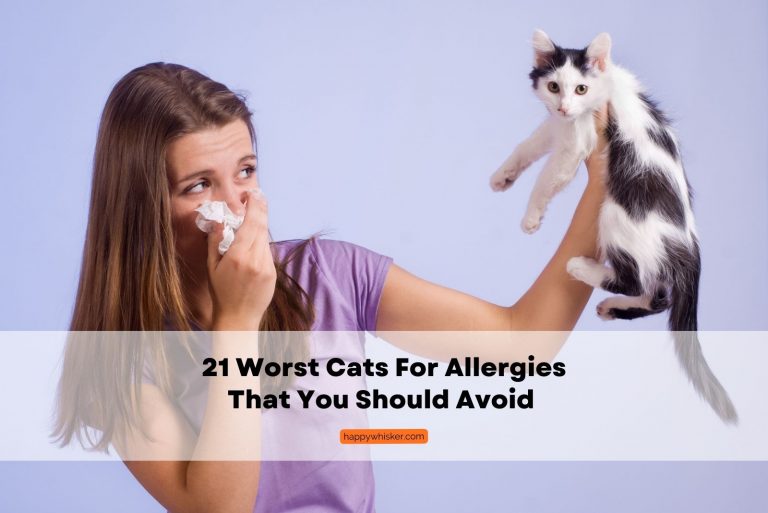Why Is My Cat Chewing On Nothing? 14 Reasons!
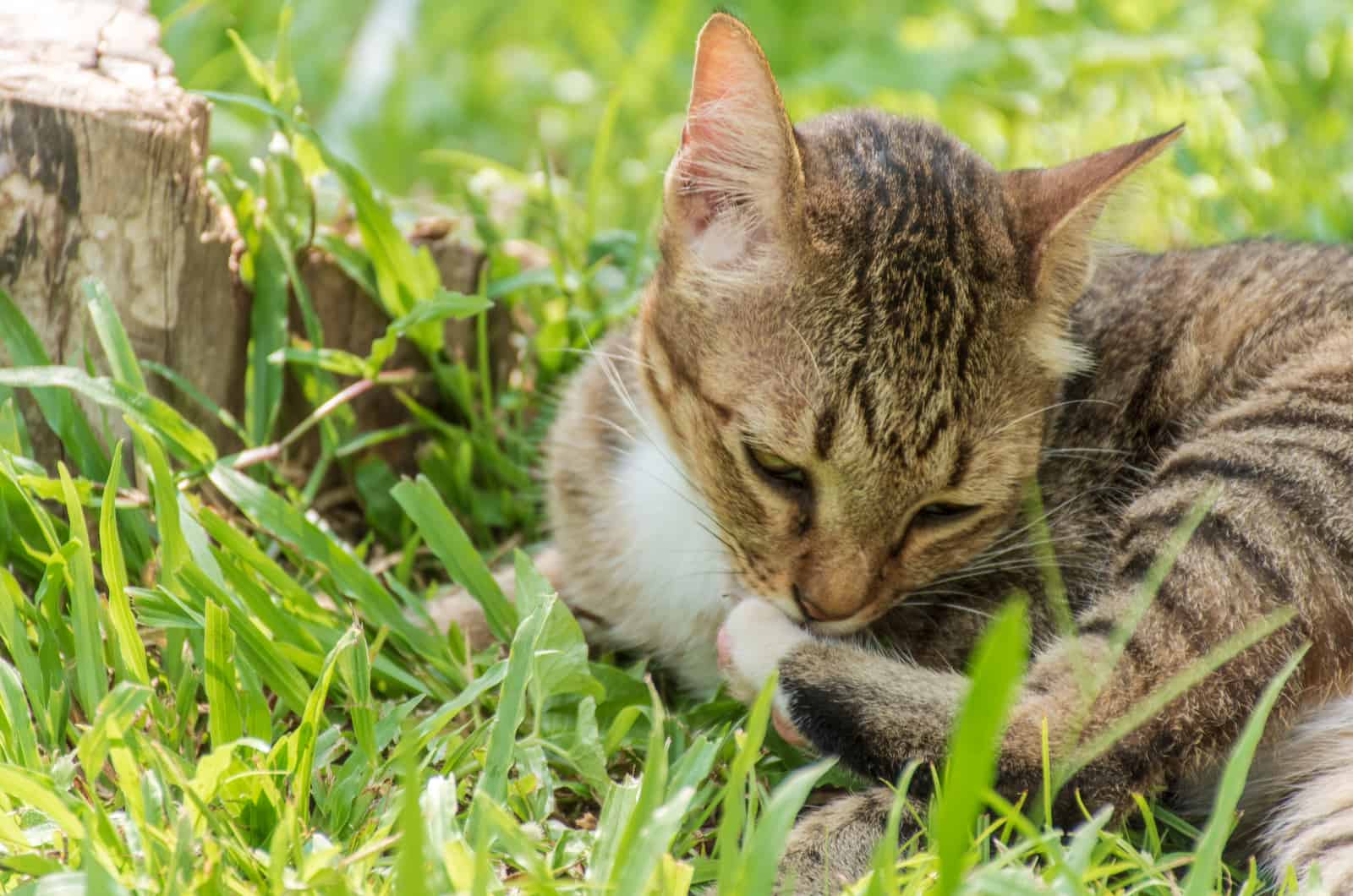
So many cat owners will have asked themselves this question at some point. Cat behavior is so interesting, mainly because the way cats act can be pretty weird.
If you notice your cat doing a strange chewing motion or looking like they’re ‘chewing air’ (chewing even though there is nothing in their mouth), it is normal to wonder what’s going on.
Old cats often do these strange chewing motions, but cats of all ages may sometimes do it. There are several reasons why this happens, so it’s good you’re here.
Why Does My Cat Keep Chewing Air
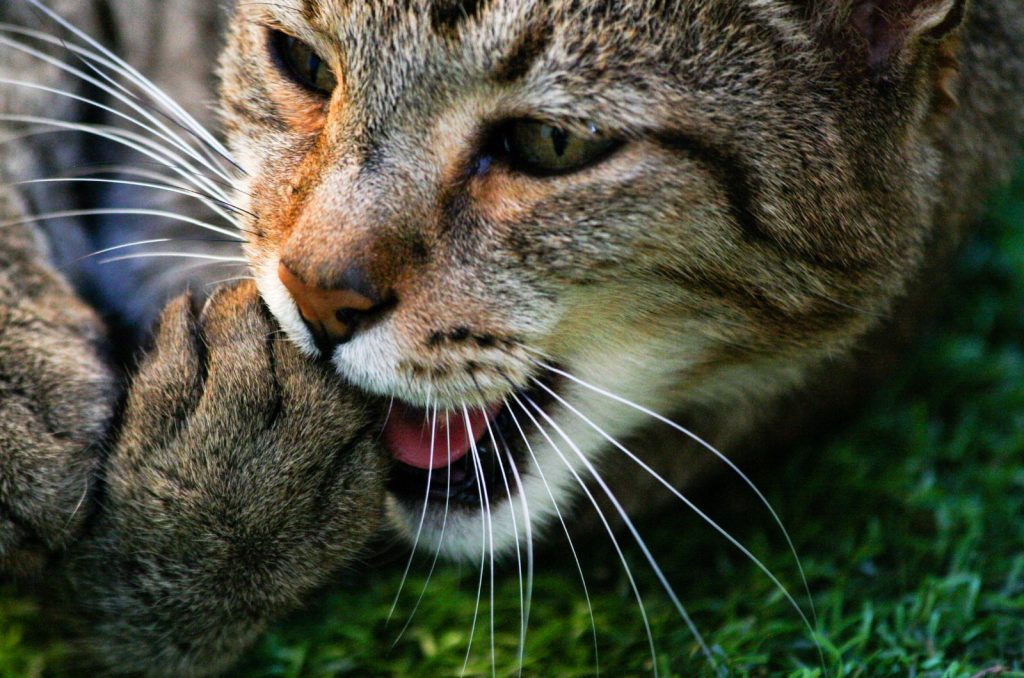
Cat behavior is a strange thing, and so interesting to observe.
Once you bond with your cat and pay attention to their everyday shenanigans, you will learn a lot. There will be times you will be amazed by what they get up to.
Cats are wonderful creatures, they can make us laugh with the simplest of actions. Sometimes (most of the time!) just the look on their cute fluffy faces makes us smile. Amongst these cute little things our cats do, there are weird ones too.
If you’ve noticed your cat chewing on air and wondered what it is doing and why, the most common reason for it is obesity.
There are other reasons as well, such as fleas, dental issues, nausea, seizures, oral diseases, tonsillitis, lymphoma, hunger or a less serious problem like something getting stuck in the cat’s teeth.
The 14 Most Common Reasons Why You See Your Cat Chewing On Nothing
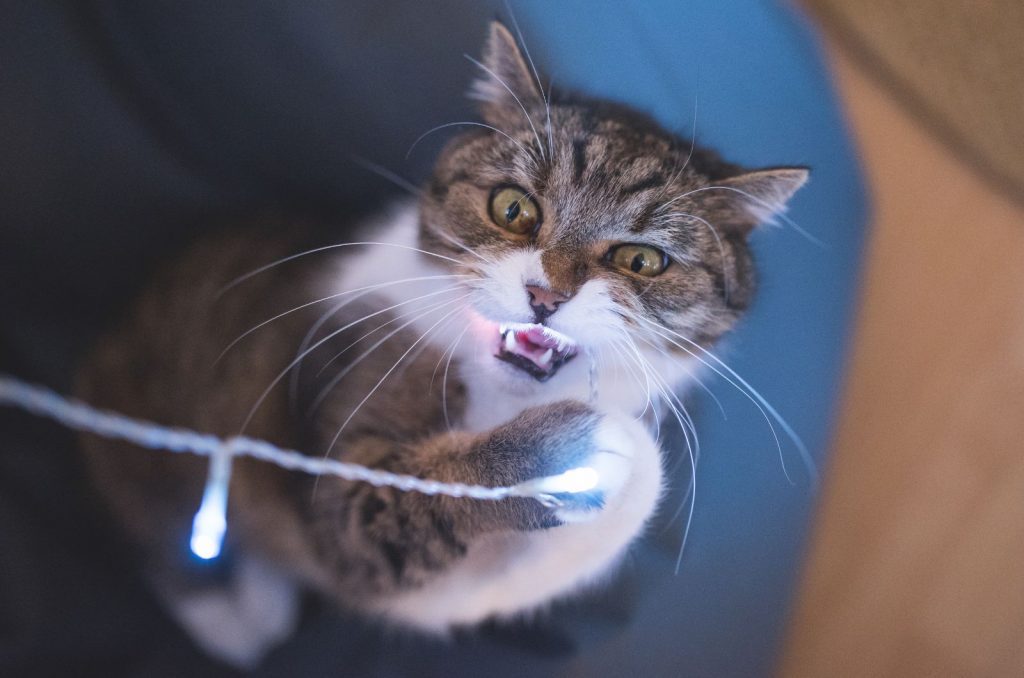
These are the most common reasons for a cat chewing on air. The reasons range from mild to severe; if you are in any doubt, consult a veterinary practitioner for professional advice.
1. Obesity
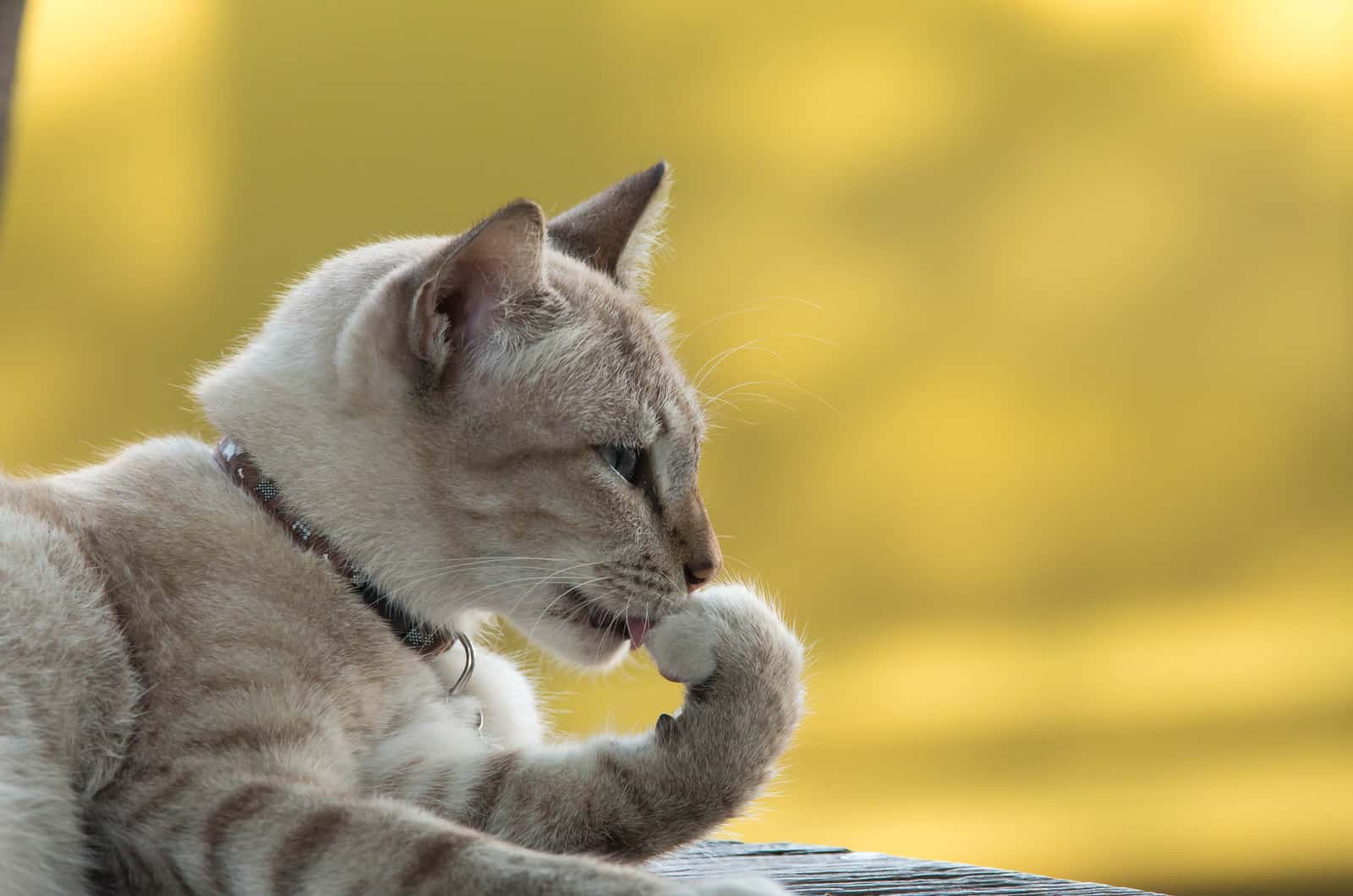
Obesity is the most common cause of chewing air. Overweight cats cannot properly groom themselves, so they start chewing, biting or licking through air in an attempt to reach their fur.
2. Flea Infestation
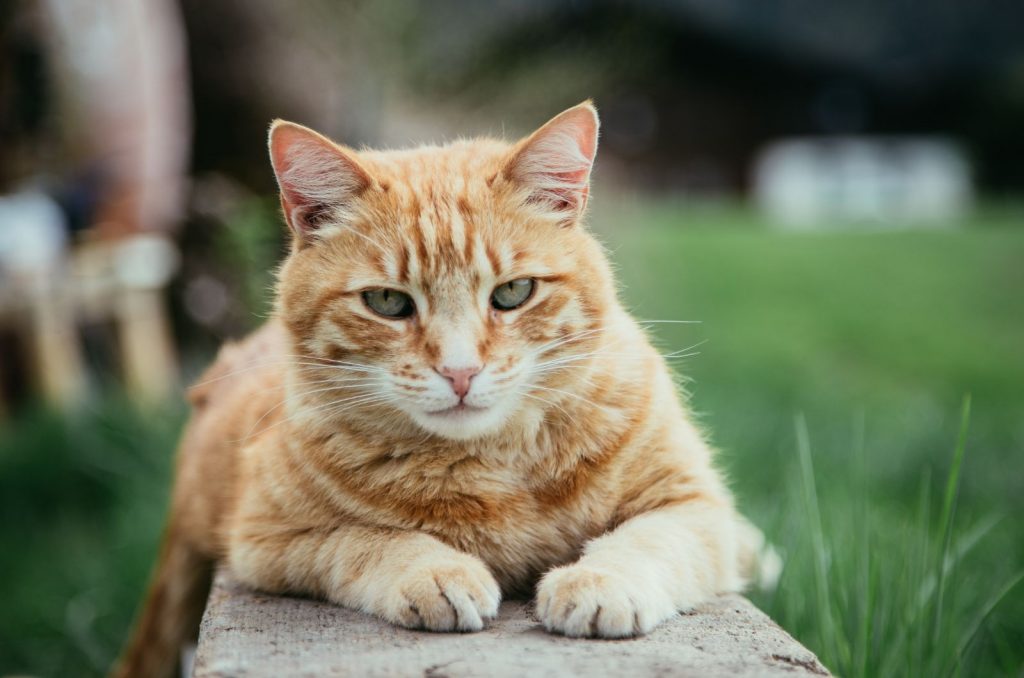
A cat having fleas can be another cause of air chewing. Cats are irritated by fleas and are constantly biting and licking themselves which leads to chewing on nothing.
Cats may be so bothered by fleas that they start to bite the air around them.
3. A Sign Of Nausea
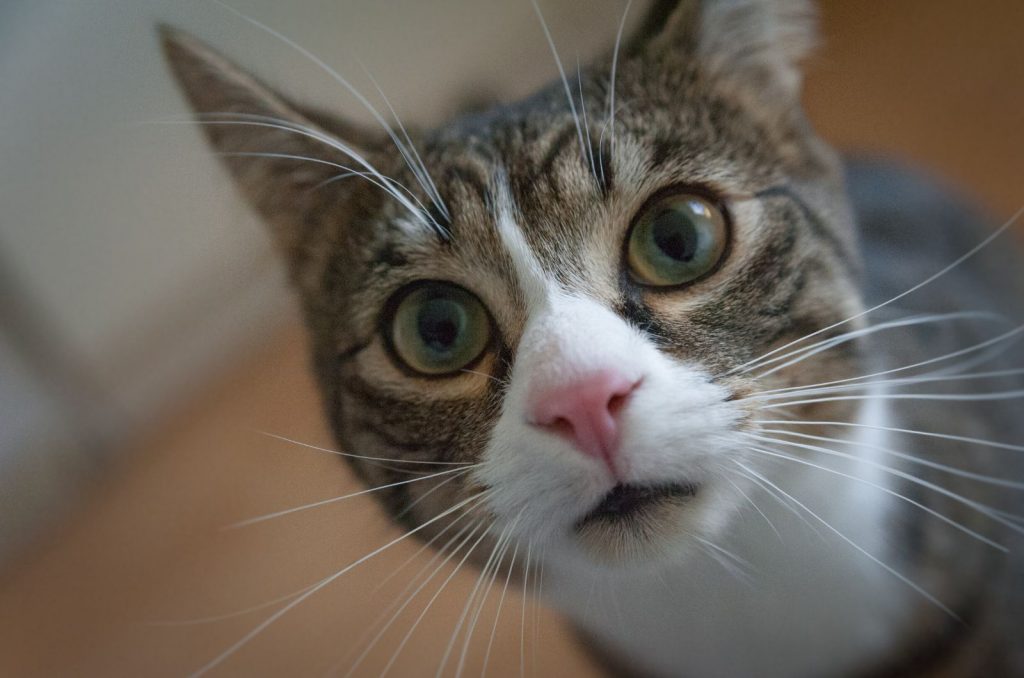
Your cat can be nauseated because of food, allergies, or illness. If they chew air after eating, it may be that they have eaten too much or it can be because of the quality of the cat food.
If you’ve made changes in their diet, it may be that something does not sit right with your cat and is making them feel nauseated. More serious reasons for nausea can include heat stroke or gastrointestinal issues.
If your cat is chewing on air as a sign of nausea, this is a good thing because it is an early symptom so you have time to react and prevent any more serious issues from occurring.
This, of course, includes making a trip to the veterinarian.
4. Tonsillitis
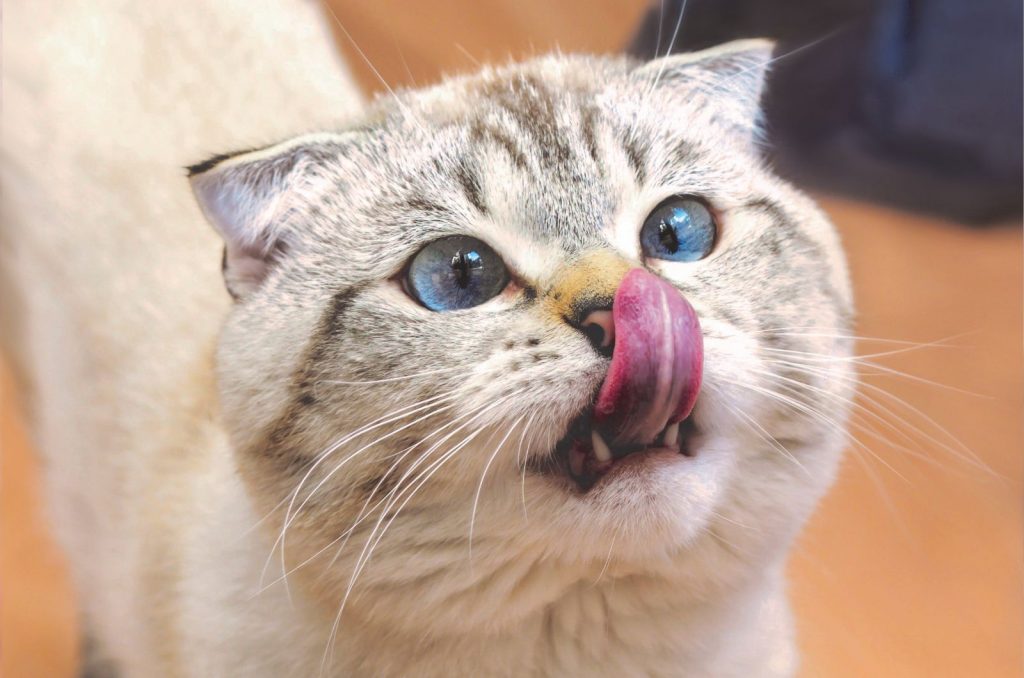
Chewing on air is a quite rare symptom for tonsillitis, but it can sometimes be present.
Tonsillitis is a medical condition where a cat’s tonsils swell up due to infection. There may be no obvious symptoms to point to this condition. However, cat behavior always helps cat owners identify when there may be a problem.
Your cat’s meows and purrs might also sound different, since your cat’s throat is affected. Your cat might be quieter and might not even produce any sound at all due to the pain.
Chewing on nothing can be one of the signs of tonsillitis pain. If it is followed by loss of appetite, then tonsillitis is probably present.
Tonsillitis needs to be taken care of as it can lead to tumors if it is not treated, so see a vet and have your cat’s throat checked.
5. Something Is Stuck In Your Cat’s Teeth
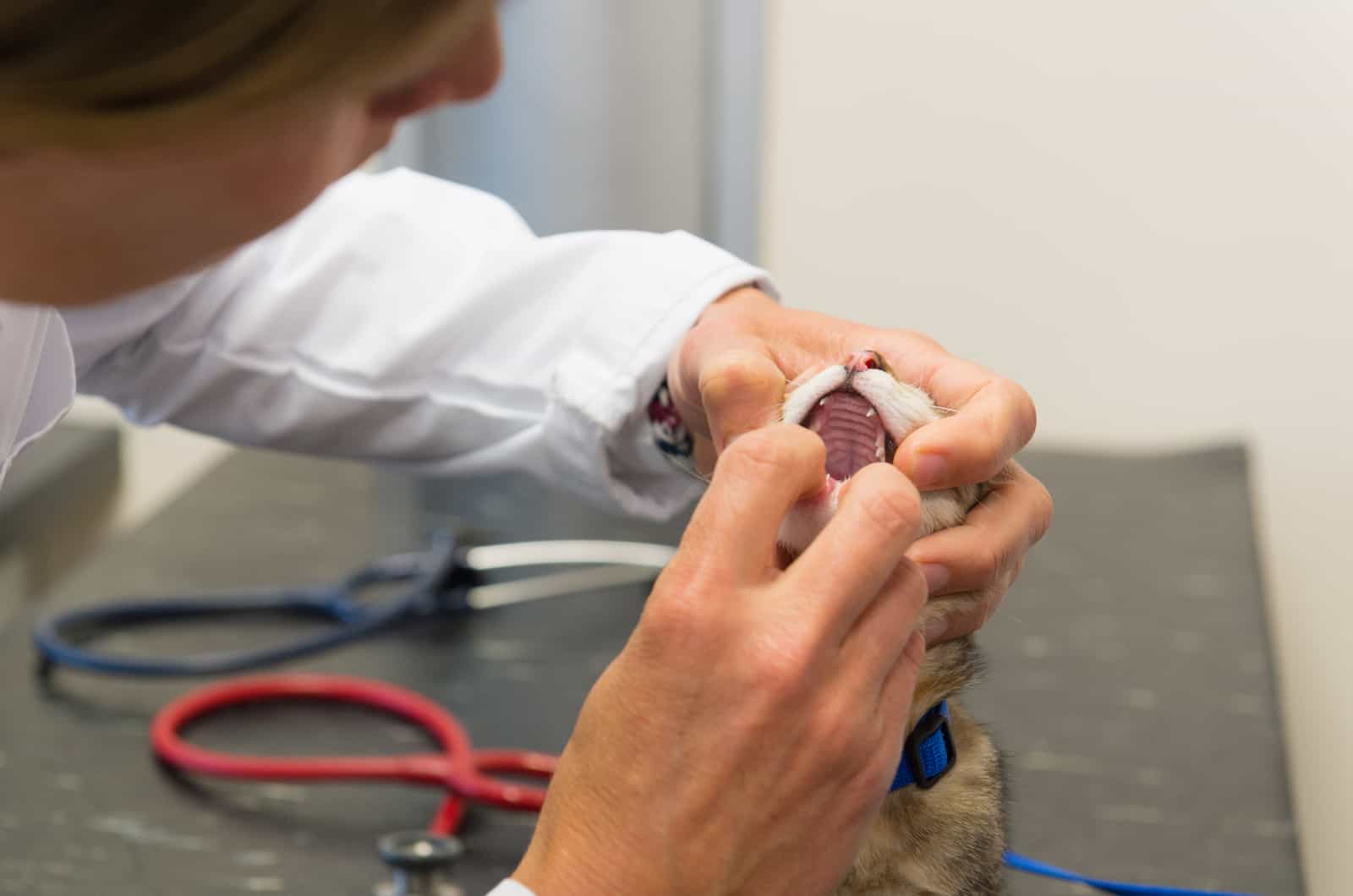
A cat chewing on nothing can be a sign that there is something stuck in between their teeth or somewhere in your cat’s mouth.
When your cat eats or plays, something can get stuck. Your cat will chew on nothing or gag in order to deal with the problem, but this will also help you to notice the problem and solve it.
Always act gently and safely for your cat. You can use a flashlight to see better inside. Gently open your cat’s mouth and check it.
Be careful to inspect every corner and if you see something (e.g. a hairball ) in the throat, or something stuck in the teeth, pull it out right away. If you are unsure or scared to do this, go to the vet as soon as possible.
6. Broken Tooth
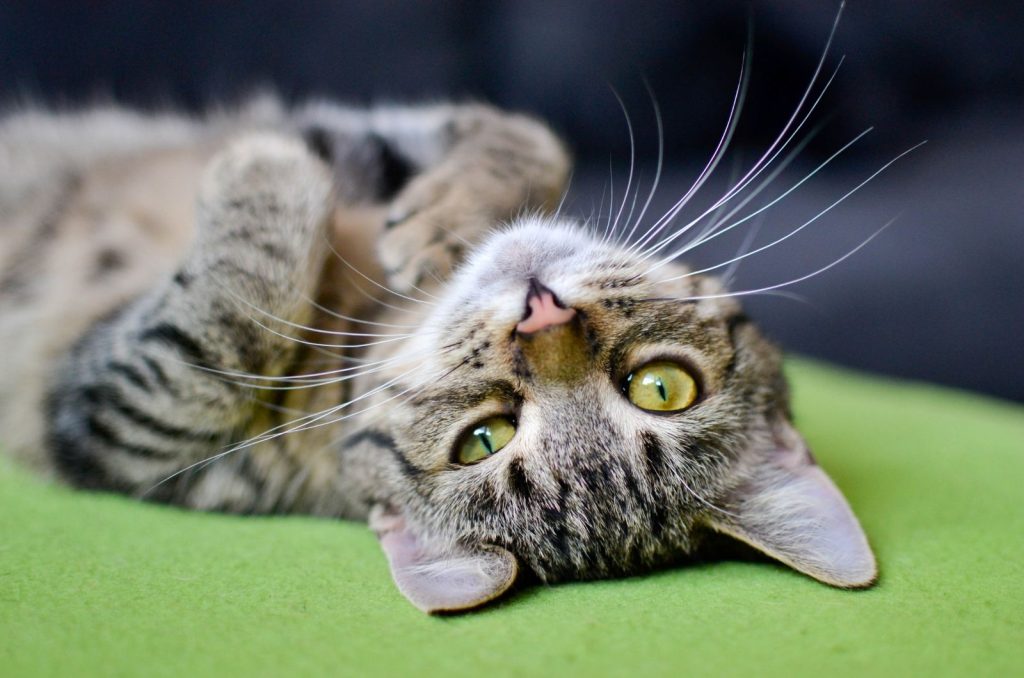
A cat chewing on nothing can also be a sign of a broken tooth. While cats are growing up, their teeth get worn out and weaker, and they may become so fragile that they can break as a cat bites their dry food.
This can be quite painful for cats to deal with.
7. Tooth Abscess
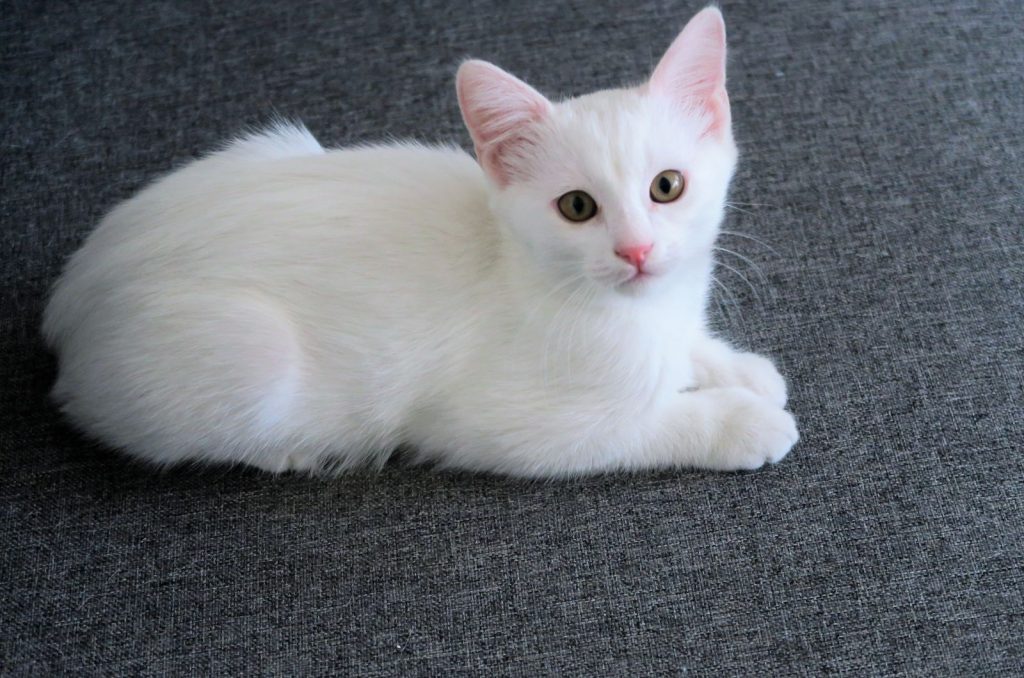
This is another painful condition for cats. When a cat has an abscessed tooth, there is infected material and pus which can cause painful swelling.
Pus has white blood cells which prevent further complications, but still your cat will not feel alright and probably won’t eat because of the pain.
A tooth abscess needs to be treated, especially because of the pain and the fact it stops the cat from eating. It can also weaken their immune system and contribute to other health issues.
8. New Teeth
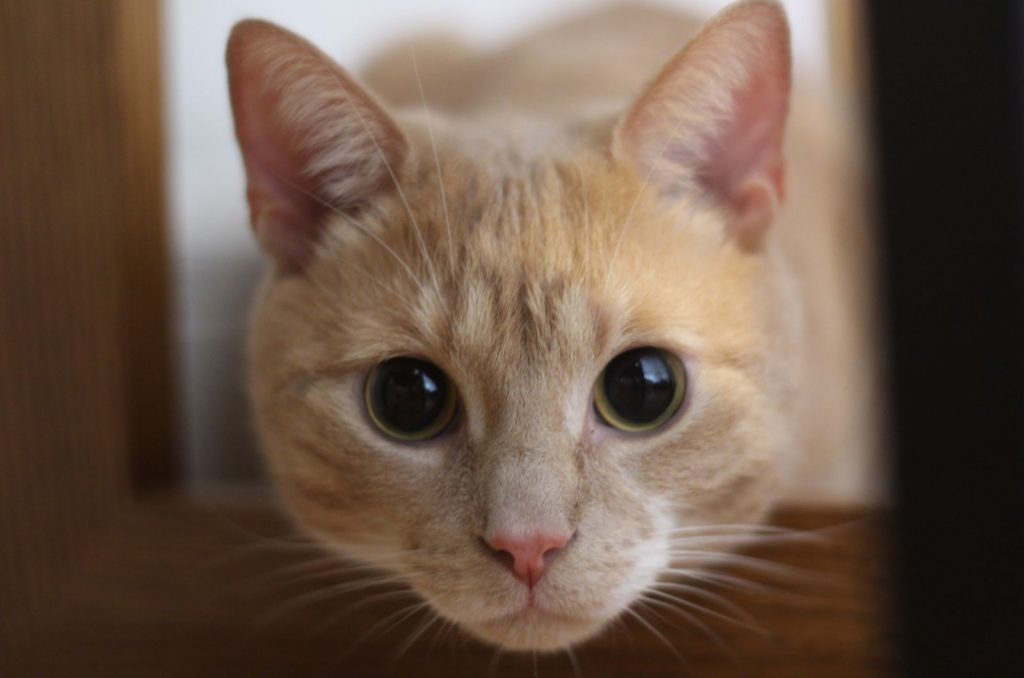
New teeth usually grow when our feline friends are still young cats. The new teeth that cause problems are the ones that grow in abnormal places or shapes.
Sometimes teeth do not grow in a proper row. This is called malocclusion. As a result of this, cats do not chew their food in the way they should and they might chew on air because of the discomfort or pain.
By performing x-rays, your vet will determine the exact issue and tell you what to do to help your beloved pet. This tooth issue is rare, and when it does happen, it is usually to certain breeds (e.g. Persian cats).
9. Periodontal Disease
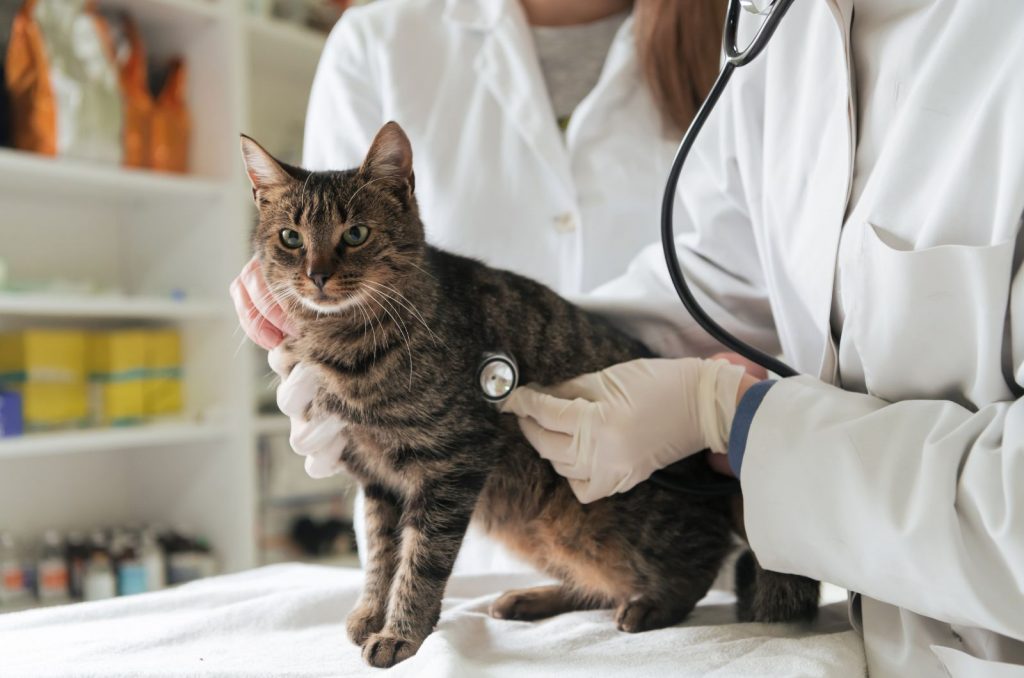
This is an oral cavity disease. Periodontal disease means any disease that affects a cat’s teeth or gums.
This type of disease usually happens because of bacteria. It can be a severe disease that causes infections and inflammation which are very painful for the cat.
Periodontal disease needs to be treated as soon as possible, so if you notice something like your cat chewing on nothing, be sure to call a vet.
This disease is quite painful and it can become severe; when it is not treated it can affect the cat’s mouth and the area around it and even lead to tooth loss.
Periodontal disease can also lead to another disease, known as FCGS (feline chronic gingivostomatitis).
10. Feline Chronic Gingivostomatitis
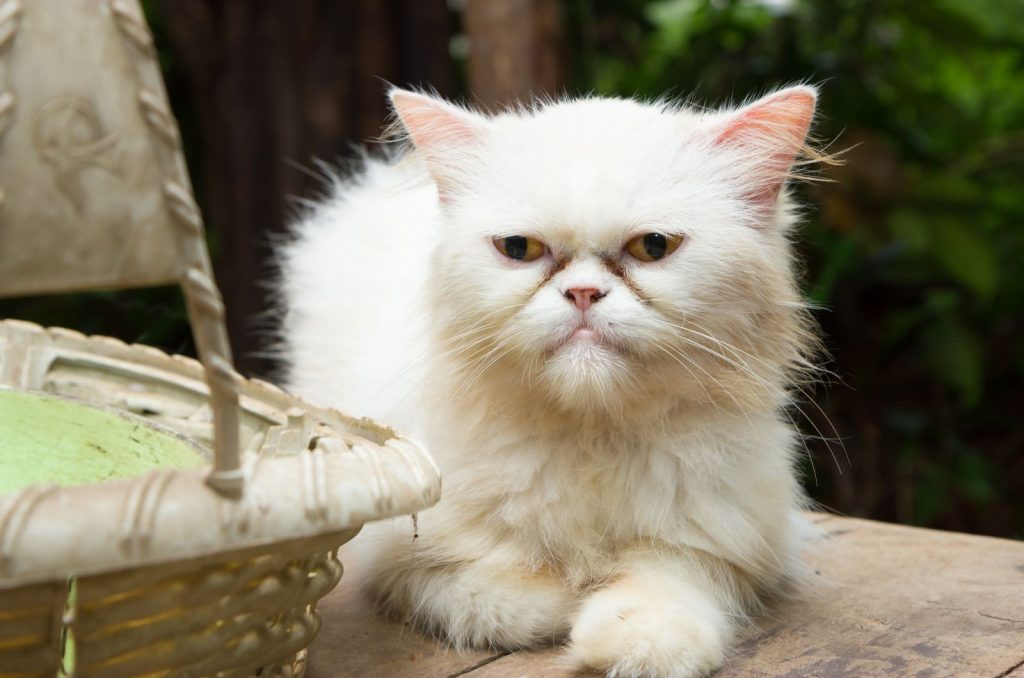
Feline chronic gingivostomatitis is a condition in which a cat’s gums swell up and ulcers appear. It is extremely painful, your cat would not be able to close their mouth, and drooling is inevitable.
Other symptoms that point to FCGS, besides chewing on nothing, include your cat not eating and signs of general discomfort and pain which you will notice from changes in your cat’s behavior.
11. Seizures
Chewing on nothing can also be a sign of a seizure. If your cat has ingested or inhaled any toxins, they will most likely chew on nothing if they have a seizure.
The most common chemical which leads to cat seizures is pyrethrin. Unfortunately, many cat shampoos or sprays contain pyrethrin, which is why you always have to be careful when choosing cat supplies.
Cats can ingest pyrethrin indirectly too, so if you notice these overemphasized chewing on air movements, schedule a vet visit.
12. Feline Calicivirus

This is a virus which can cause severe problems, such as respiratory or oral diseases in cats, and pets in general.
Fortunately, feline calicivirus can be successfully treated. There are many different medications and home treatments.
If your cat has feline calicivirus, they will often chew on nothing because they will not be able to close their mouth properly and might feel suffocated.
13. Feline Hyperesthesia Syndrome
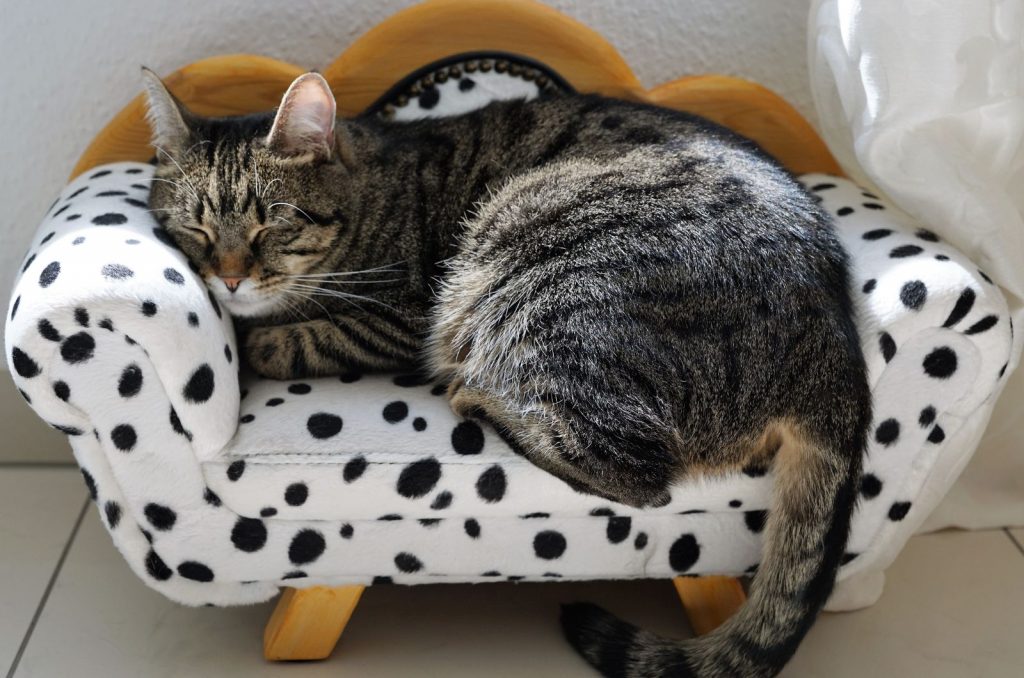
Feline hyperesthesia syndrome occurs because of skin allergies, allergies to food, or some other external factors. These allergies are usually treated with steroids but if it is a food allergy, your cat will be prescribed a new food diet.
FHS is a skin syndrome where the skin and the neuromuscular system are affected. The cat will then intensely lick and bite on their fur, and they may also chew on air.
14. Lymphoma
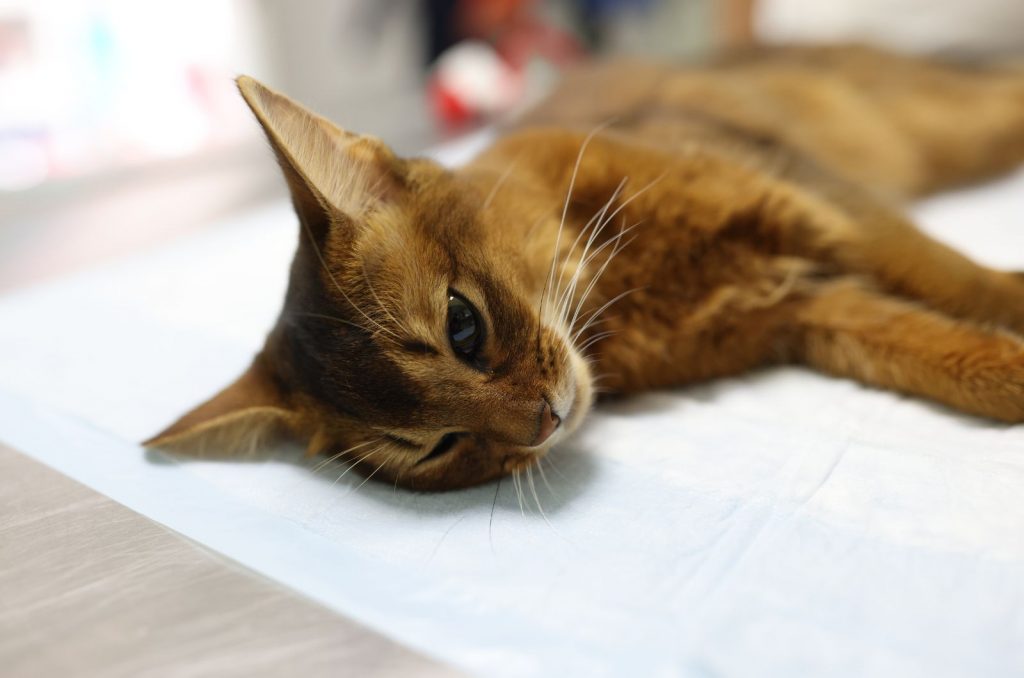
Feline lymphoma is the most serious reason for a cat chewing on nothing. Lymphoma is the worst case scenario when you see your cat chewing air.
Lymphoma is a malignant disease that no cat owner ever wants to deal with. It is a disease concerning the white blood cells. When it occurs in cats, it can happen in any cells, but it usually occurs at the mediastinum, lymph nodes, etc.
Symptoms that occur when a cat has lymphoma include: weight loss, chewing on nothing, litter box issues (like vomiting or diarrhea), and appetite changes. Lymphoma usually affects the cat’s intestinal area.
There are different types of lymphoma, the best thing you can do is go to the vet. By performing blood tests, your vet can rule out other diseases and tell you exactly what is going on.
Final Thoughts
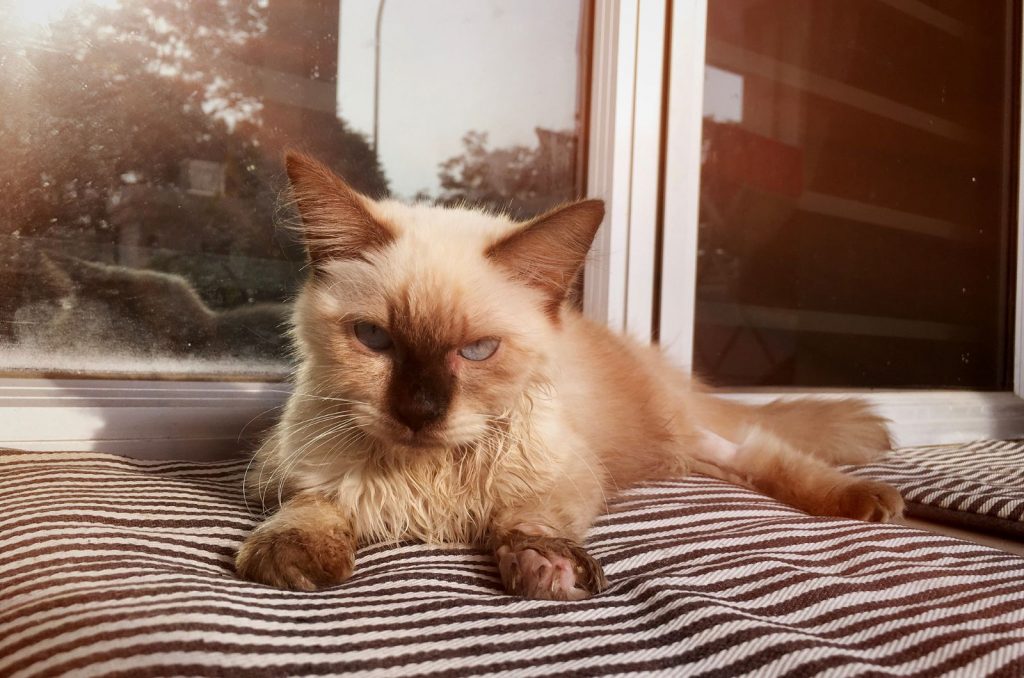
To conclude, there are many reasons for a cat chewing on nothing, and they vary in severity.
It is always a good idea for cat owners to educate themselves on cat behavior. Your cat chewing on nothing can be something harmless, but it can also be a sign of a serious health problem.
Reasons why your cat is chewing on nothing can include certain diseases, dental issues, nausea, fleas, or even obesity.
Now that you’ve read the 14 reasons behind your cat chewing on nothing, I am sure that you may have insight into what the problem might be for your cat. However, going to the vet is always the right choice.
Whatever is happening with your cat, it is always important to pay attention to them and monitor their behavior. It will make it easier for your vet to help as well.
I am sure that you will solve any issues your cat has, and have them purring like before in no time!

